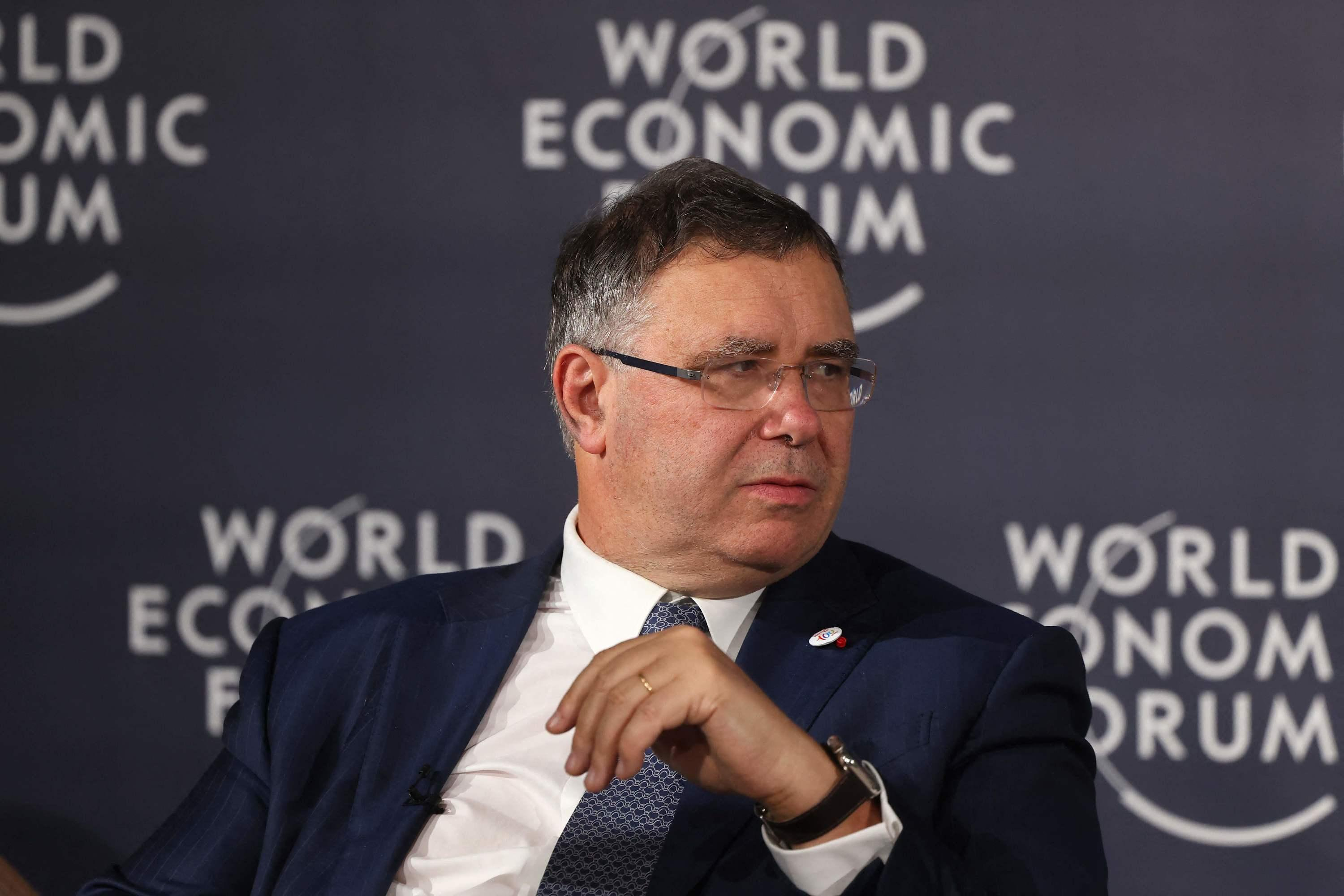This is not the least of territorial disputes. Caracas has claimed for more than a century the Essequibo, an area of 160,000 km2 of its neighbor Guyana, which corresponds to twice the size of French Guiana or almost a third of mainland France.
For Guyana, a former British and Dutch colony and a country covered by a dense tropical forest, the Essequibo represents more than two thirds of its territory where around a fifth of its population lives, or some 125,000 people. It is also a real oil El Dorado (the small state will extract nearly 1% of global demand in 2025). And Venezuela is organizing this Sunday, December 3, a referendum supposed to focus on the rejection of a court decision dating back to 1899 which fixes the country's border with Guyana.
This Venezuelan claim became even more burning when ExxonMobil, an American oil company, discovered deposits in the west of the country in 2015. A new discovery of black gold took place again last month in Essequibo, adding to Guyana's already colossal reserves of at least ten billion barrels, more than those of Kuwait or the United Arab Emirates.
Also read: Will Latin American populism take hold in France?
Venezuelans are to be asked on Sunday whether they reject the 1899 agreement allegedly “fraudulently imposed” on them and on the creation of the “State of Guyana Essequiba”. The consultation is also expected to focus on whether Venezuela should continue to reject any ICJ jurisdiction over the dispute and whether the country should give residents of the territory Venezuelan citizenship.
Guyana logically protested against this referendum which it described as an “existential threat”. The country asked the International Court of Justice (ICJ), the UN's highest court, to force Venezuela to “urgently” stop the referendum “in its current form” and to refrain from any action aiming to take control of the territory.
The ICJ, which rules on disputes between states but which does not have the power to apply its decisions which can be legally binding, must rule this Friday. Guyana's government in Georgetown fears a "unilateral and illegal" annexation and has even accused its neighbor of having launched military preparations, which Caracas denies. “Venezuela reaffirms its categorical rejection of Guyana’s bold action to interfere in its internal affairs,” Venezuelan Vice President Delcy Rodriguez declared before the ICJ in mid-November. She also took care to emphasize that her presence did not mean that her country recognized the jurisdiction of the court in this matter.
If there were to be a possible military confrontation, the Brazilian army, which has already supported Guyana, could provide aid to its neighbor, and prevail "qualitatively and quantitatively with the upper hand", he said. analyzed on X Joseph Henrotin specialist in questions of military strategy.
First, the Brazilian navy outclasses the Venezuelan navy, says the researcher who recalls the improbable episode in 2020 during which a Venezuelan patrol boat sank after attempting an improbable and surprising operation to board a cruise ship coming from Buenos Aires, as reported in particular by Mer et Marine.
Then, “the jungle is, with the high mountains and urban spaces, one of the most ‘solid’ spaces there is”, in other words it gives a formidable defensive advantage to Guyana. Finally, and according to the Brazilian press, the army has already urgently deployed armored vehicles and units in the region. The Brazilian Ministry of Defense also announced on Wednesday that it had “intensified its defensive actions in the northern border region and increased its military presence.”
According to observers, the Venezuelan government, in addition to oil interests, could count on this quarrel to revive patriotic feeling, while the popularity of the regime, described as a dictatorship by many Western countries, is at its lowest (85% of Venezuelans want a change of power, according to a Delphos survey, indicates Courrier international).
The Venezuelan head of state Nicolas Maduro could therefore “attempt a headlong flight”, according to the Caracas correspondent of El País America, as also noted by Courrier international. “It is very difficult not to give an electoral interpretation of this process,” he also analyzes, while the opposition primaries in October met with significant success.
The winner of these primaries, Maria Corina Machado, also described the referendum as a “distraction” before the 2024 presidential election. “She managed to capture the attention of Venezuelans, which greatly worries the Chavista camp,” explained recently in Figaro a political scientist. The Supreme Court of Justice, in the pay of those in power, even announced the cancellation of the primary.

 B:SM will break its investment record this year with 62 million euros
B:SM will break its investment record this year with 62 million euros War in Ukraine: when kyiv attacks Russia with inflatable balloons loaded with explosives
War in Ukraine: when kyiv attacks Russia with inflatable balloons loaded with explosives United States: divided on the question of presidential immunity, the Supreme Court offers respite to Trump
United States: divided on the question of presidential immunity, the Supreme Court offers respite to Trump Maurizio Molinari: “the Scurati affair, a European injury”
Maurizio Molinari: “the Scurati affair, a European injury” Irritable bowel syndrome: the effectiveness of low-carbohydrate diets is confirmed
Irritable bowel syndrome: the effectiveness of low-carbohydrate diets is confirmed Beware of the three main sources of poisoning in children
Beware of the three main sources of poisoning in children First three cases of “native” cholera confirmed in Mayotte
First three cases of “native” cholera confirmed in Mayotte Meningitis: compulsory vaccination for babies will be extended in 2025
Meningitis: compulsory vaccination for babies will be extended in 2025 Thanks to intelligent cameras, RATP will indicate the least crowded trains on line 14
Thanks to intelligent cameras, RATP will indicate the least crowded trains on line 14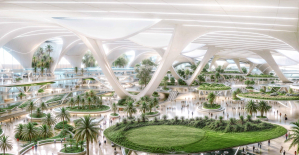 Dubai begins the transformation of Al-Maktoum to make it the future “largest airport in the world”
Dubai begins the transformation of Al-Maktoum to make it the future “largest airport in the world” When traveling abroad, money is a source of stress for seven out of ten French people
When traveling abroad, money is a source of stress for seven out of ten French people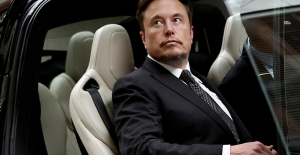 Elon Musk arrives in China to negotiate data transfer and deployment of Tesla autopilot
Elon Musk arrives in China to negotiate data transfer and deployment of Tesla autopilot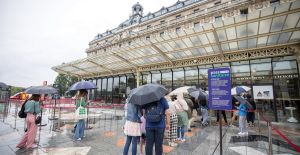 Two people arrested for attempted damage to classified property at the Musée d’Orsay
Two people arrested for attempted damage to classified property at the Musée d’Orsay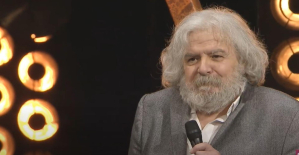 Death of composer Jean Musy, at 76, author of the music of Papy fait de la resistance, Les Champs-Élysées
Death of composer Jean Musy, at 76, author of the music of Papy fait de la resistance, Les Champs-Élysées Fanny Ardant prodigious in The Wound and the Thirst
Fanny Ardant prodigious in The Wound and the Thirst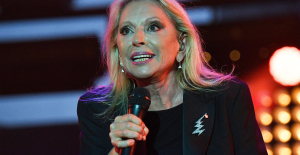 Hospitalized for pneumonia, Véronique Sanson cancels her concert in Nantes
Hospitalized for pneumonia, Véronique Sanson cancels her concert in Nantes Skoda Kodiaq 2024: a 'beast' plug-in hybrid SUV
Skoda Kodiaq 2024: a 'beast' plug-in hybrid SUV Tesla launches a new Model Y with 600 km of autonomy at a "more accessible price"
Tesla launches a new Model Y with 600 km of autonomy at a "more accessible price" The 10 best-selling cars in March 2024 in Spain: sales fall due to Easter
The 10 best-selling cars in March 2024 in Spain: sales fall due to Easter A private jet company buys more than 100 flying cars
A private jet company buys more than 100 flying cars This is how housing prices have changed in Spain in the last decade
This is how housing prices have changed in Spain in the last decade The home mortgage firm drops 10% in January and interest soars to 3.46%
The home mortgage firm drops 10% in January and interest soars to 3.46% The jewel of the Rocío de Nagüeles urbanization: a dream villa in Marbella
The jewel of the Rocío de Nagüeles urbanization: a dream villa in Marbella Rental prices grow by 7.3% in February: where does it go up and where does it go down?
Rental prices grow by 7.3% in February: where does it go up and where does it go down? Europeans: a senior official on the National Rally list
Europeans: a senior official on the National Rally list Blockade of Sciences Po: the right denounces a “drift”, the government charges the rebels
Blockade of Sciences Po: the right denounces a “drift”, the government charges the rebels Even on a mission for NATO, the Charles-de-Gaulle remains under French control, Lecornu responds to Mélenchon
Even on a mission for NATO, the Charles-de-Gaulle remains under French control, Lecornu responds to Mélenchon “Deadly Europe”, “economic decline”, immigration… What to remember from Emmanuel Macron’s speech at the Sorbonne
“Deadly Europe”, “economic decline”, immigration… What to remember from Emmanuel Macron’s speech at the Sorbonne These French cities that will boycott the World Cup in Qatar
These French cities that will boycott the World Cup in Qatar Mercato: Fonseca coach of AC Milan? The Lille coach speaks
Mercato: Fonseca coach of AC Milan? The Lille coach speaks Ligue 1: OM with a three-way defense, Lens changes almost nothing
Ligue 1: OM with a three-way defense, Lens changes almost nothing Ligue 1: PSG officially crowned champion of France for the 12th time
Ligue 1: PSG officially crowned champion of France for the 12th time Ligue 1: Lyon offers Monaco and gets closer to a European place
Ligue 1: Lyon offers Monaco and gets closer to a European place




